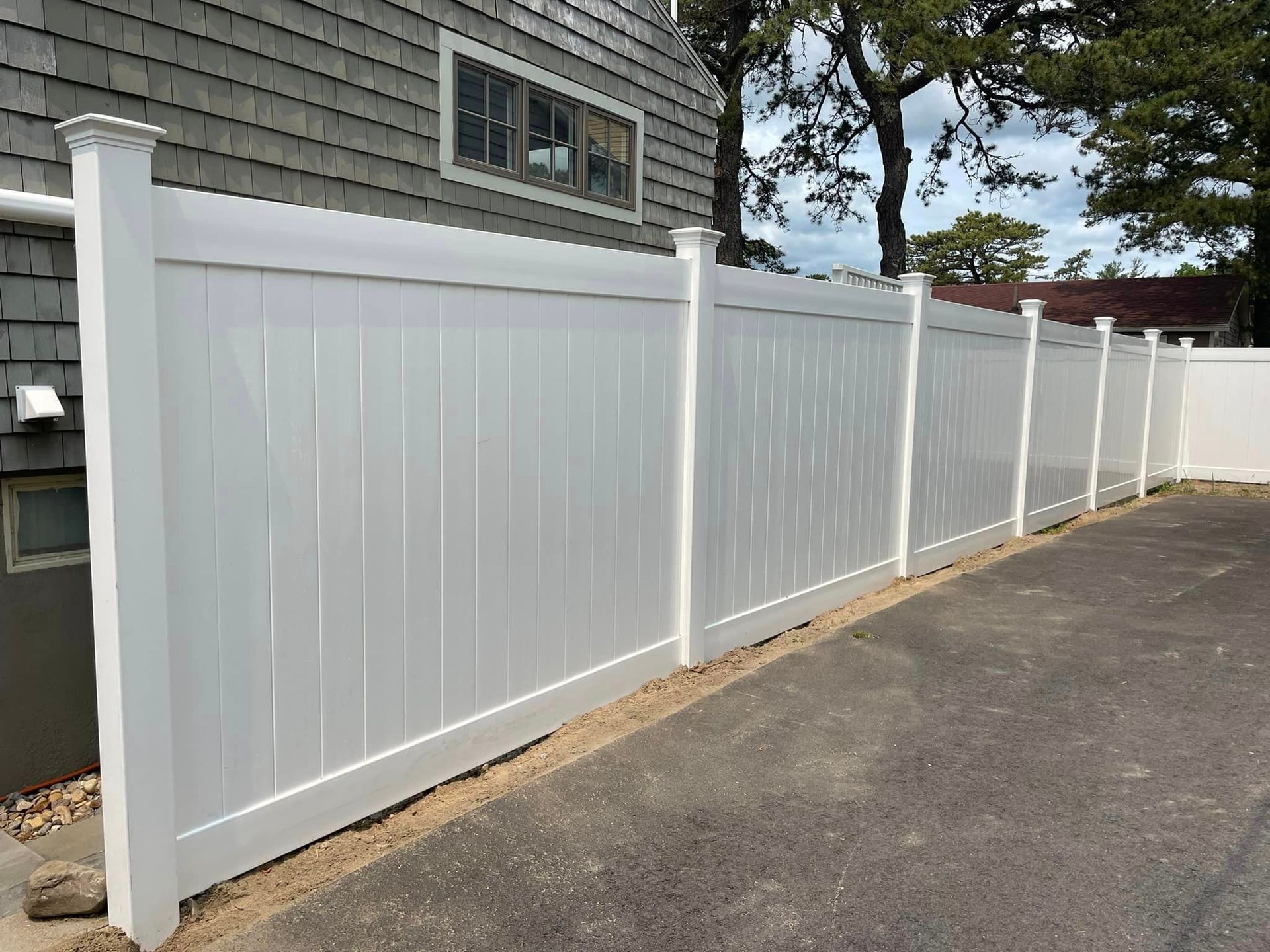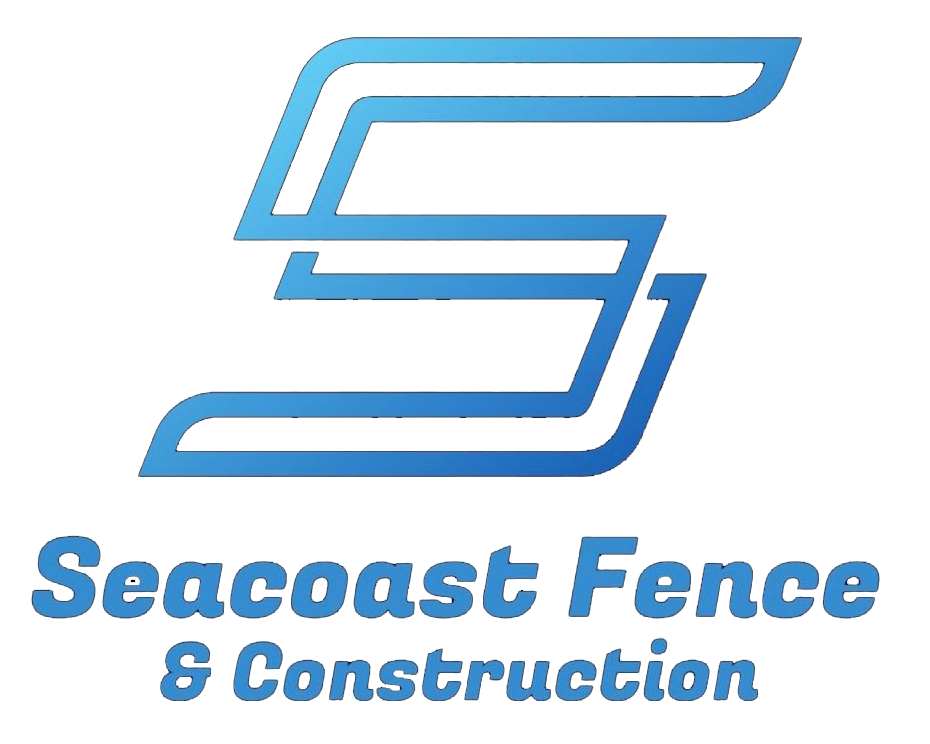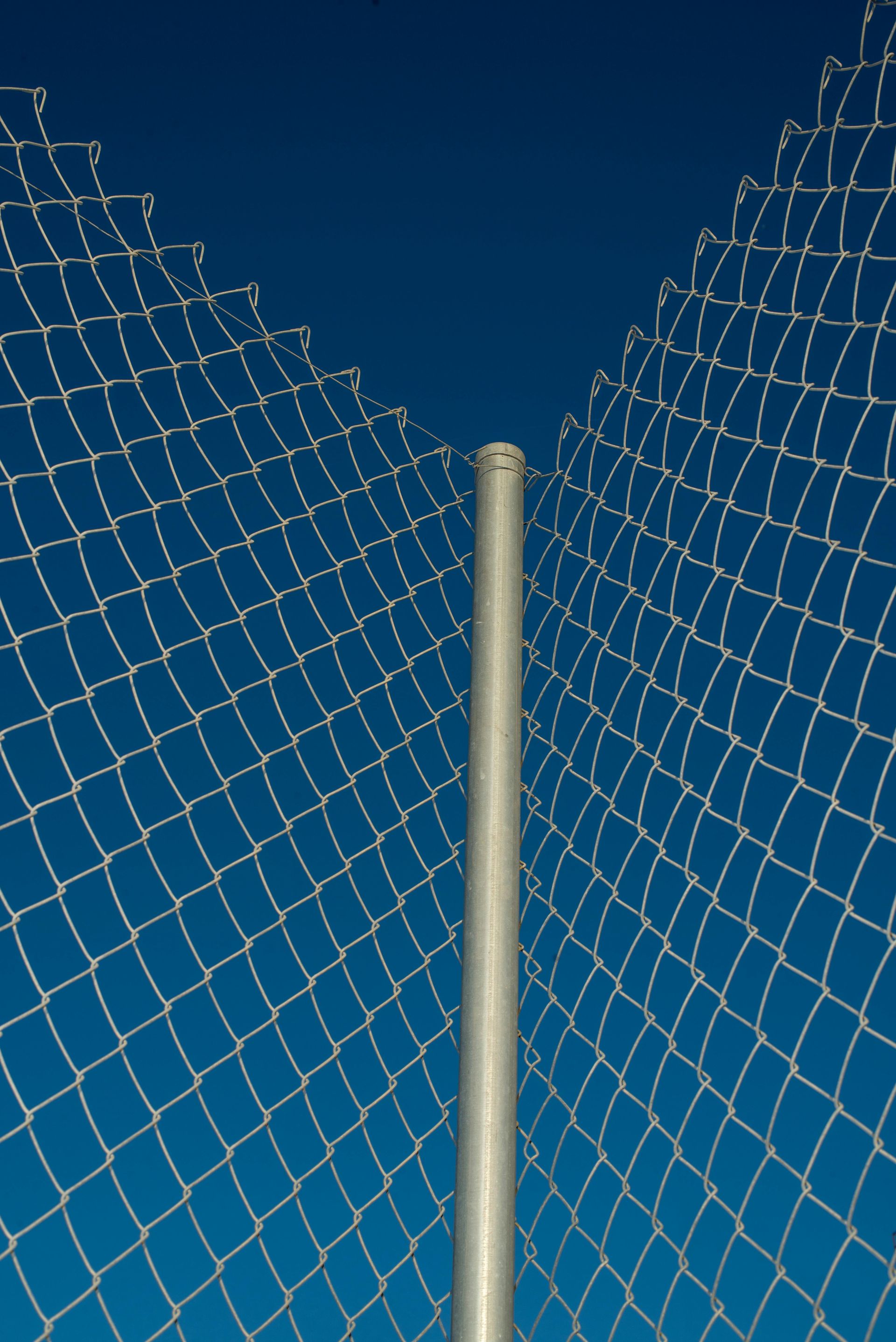Call Us: (207)-415-0219
How Much Does a Privacy Fence Cost? | Installation Tips

How Much Does a Privacy Fence Cost? Installation Prices Explained
Putting up a privacy fence isn’t just about marking your property—it’s about adding security, keeping your space private, and boosting your home’s overall look. But before you dive in, it’s smart to get a clear idea of what it’s going to cost.
Whether you’re after a certain style or long-term durability, the price can vary a lot depending on your choices. Things like materials, labor, and how big your fence is all play a role. Understanding these costs upfront can help you plan and avoid surprises later.
In this guide, we’ll break down the main factors that affect the cost of a privacy fence, compare materials, and help you find the best option for your budget.
Average Cost of a Privacy Fence in 2024
So, how much can you expect to pay for a privacy fence? On average, privacy fences range from $15 to $45 per linear foot in 2024. That means for a 100-foot fence, you’re looking at $1,500 to $4,500 depending on the materials you choose and where you live.
The price breaks down into two main categories: materials and labor. If you go with high-end materials like vinyl or composite, you’ll be on the higher end of that range. More affordable options like wood can help keep costs down, but they might require more maintenance in the long run. Labor also varies, especially if your yard needs prep work like clearing trees or leveling.
Here’s a quick look at the typical price range:
- Wood Privacy Fence: $15–$30 per linear foot
- Vinyl Privacy Fence: $25–$40 per linear foot
- Composite Privacy Fence: $35–$45 per linear foot
- Metal Privacy Fence: $30–$50 per linear foot
These numbers give you a starting point, but it’s important to remember that your final cost depends on a mix of factors that we’ll dig into next.
Key Factors That Influence Privacy Fence Costs
Several factors play into how much your privacy fence will cost. Let’s break down the key elements that can impact the price:
1. Material Types
The material you choose is one of the biggest factors in your overall cost. Here’s how different materials compare:
- Wood: Popular for its natural look and lower upfront cost, but it needs regular maintenance. You’ll likely spend between $15 and $30 per linear foot.
- Vinyl: More expensive upfront at around $25 to $40 per linear foot, but it’s low maintenance and lasts longer.
- Composite: Made from a mix of wood fibers and plastic, composite fences are durable and resistant to rot. Expect to pay $35 to $45 per linear foot.
- Metal: Metal privacy fences (like aluminum or steel) are strong and long-lasting, but they come at a higher cost—around $30 to $50 per linear foot.
2. Fence Height and Length
Taller fences and longer yards will naturally cost more. Most privacy fences are around 6 feet tall, but if you need something higher for added security or privacy, expect the price to go up. The length of your fence is also a major factor. More length means more materials and labor.
3. Labor Costs
Labor is a huge part of the total price. If you’re hiring professionals, the cost will vary based on where you live. Urban areas tend to have higher labor costs than rural ones. If your yard has uneven ground or obstacles, like trees or large rocks, this can also increase labor expenses.
4. Custom Features
If you want a gate, lattice top, or any decorative elements, these will add to the cost. Gates can run anywhere from $150 to $500 depending on size and material.
By understanding these key factors, you can better estimate what you’ll need to budget for your fence project.
Privacy Fence Material Cost Breakdown
Choosing the right material for your privacy fence is a key decision because it impacts not just the look and durability, but also how much you’ll spend upfront and over time. Let’s break down the costs of the most common materials.
1. Wood Privacy Fences
Wood is one of the most popular choices because it’s affordable and offers a natural look. However, wood requires regular maintenance, like staining or sealing, to prevent rot, especially in areas with high moisture.
- Cost: $15–$30 per linear foot
- Lifespan: 10–15 years with proper maintenance
- Pros: Affordable upfront, customizable, natural appearance
- Cons: High maintenance, susceptible to weather damage
2. Vinyl Privacy Fences
Vinyl fences are pricier but require very little upkeep. They resist weather and pests and can last for decades without fading or warping. If you’re looking for something low-maintenance, vinyl might be worth the higher initial investment.
- Cost: $25–$40 per linear foot
- Lifespan: 20–30 years
- Pros: Low maintenance, durable, resistant to weather and pests
- Cons: Higher upfront cost, less customizable than wood
3. Composite Privacy Fences
Composite is a blend of wood fibers and plastic. It offers the look of wood but with better durability and lower maintenance. It’s a great option if you want the wood look without constant upkeep.
- Cost: $35–$45 per linear foot
- Lifespan: 25–30 years
- Pros: Long-lasting, low maintenance, weather-resistant
- Cons: Expensive, fewer color options
4. Metal Privacy Fences
If durability and security are your top concerns, metal fences like aluminum or steel are solid options. They provide a modern look, resist weathering, and require minimal upkeep. However, they’re the most expensive option.
- Cost: $30–$50 per linear foot
- Lifespan: 25–40 years
- Pros: Extremely durable, low maintenance, high security
- Cons: High upfront cost, less privacy than solid wood or vinyl
When choosing your material, consider how much maintenance you’re willing to handle and whether the upfront cost fits your budget. A pricier, low-maintenance material might save you money and effort in the long run.
Installation Costs for a Privacy Fence
Installing a privacy fence isn’t just about the materials; labor costs can make up a big part of the total price. Whether you go the DIY route or hire a pro, it’s important to understand what you’re paying for.
1. Professional Installation Costs
If you hire a contractor, you’re paying for their expertise, tools, and time. The price for professional installation varies depending on where you live, the complexity of the job, and the type of fence. On average, you can expect to pay around $30 to $60 per hour for labor. For a standard 100-foot fence, labor costs can add anywhere from $1,000 to $3,000 to your overall bill.
Why Choose a Professional?
- Speed: Contractors can get the job done much faster than a DIY project.
- Expertise: They have the right tools and know how to handle any unexpected issues, like uneven ground or tough soil.
- Warranty: Many pros offer warranties on their work, giving you peace of mind if something goes wrong.
2. DIY Installation Costs
If you’re handy and willing to put in the work, installing the fence yourself can save you a lot of money on labor. But keep in mind, it’s not always a walk in the park—especially if you don’t have the right tools or experience.
- Cost Savings: By going DIY, you’ll avoid labor costs, but you may still need to rent tools like post-hole diggers, which can cost around $50 to $100 per day.
- Time Commitment: A DIY installation will take longer, especially if you’re new to fence building.
- Potential Risks: Mistakes like improper measurements or uneven posts can lead to extra costs down the road.
Which Is Right for You?
If you have the time and skills, DIY can save you a lot of cash. But if you want a hassle-free process, it’s probably worth hiring a pro. Either way, make sure to factor in both material and labor costs when budgeting for your project.
Hidden Costs of Privacy Fence Installation
When planning for a privacy fence, it’s easy to focus on the material and labor costs. But there are often hidden expenses that can catch you off guard if you’re not prepared. Let’s look at some of the extra costs you might run into during your project.
1. Permit Fees
Depending on where you live, you may need a permit to install a fence. Permit fees can range from $50 to $400, depending on local regulations. It’s a good idea to check with your city or county government to find out what’s required before you start your project. Skipping this step can result in fines or needing to tear down the fence later.
2. Land Surveying
If you’re not sure where your property line is, you might need to hire a surveyor. A land survey ensures that you’re building your fence within the legal boundaries of your property. Surveying can cost anywhere from $300 to $700, but it can save you from disputes with neighbors or legal troubles down the road.
3. Ground Preparation
If your yard isn’t perfectly flat, you may need to do some ground prep work before installing the fence. This could include clearing trees, removing rocks, or leveling the land. Ground preparation costs can vary widely based on the condition of your yard, but expect to pay anywhere from $500 to $2,000 if major work is needed.
4. Post Installation Costs
Once your fence is up, there may be ongoing costs for maintenance, repairs, or upgrades. For example, wood fences need regular staining or sealing, which can cost $200 to $500 every few years. If you add a gate, this will increase your upfront and long-term costs, especially if it needs repairs later on.
By keeping these hidden costs in mind, you’ll be able to plan a more accurate budget for your privacy fence and avoid any unpleasant surprises.
How to Save Money on Privacy Fence Installation
While privacy fences can be a big investment, there are smart ways to cut costs without sacrificing quality. Here are a few strategies to help you stay within your budget:
1. Choose Affordable Materials
The material you choose plays a huge role in the overall cost. If you’re on a tight budget, consider materials like pressure-treated wood or chain-link with privacy slats, which tend to be more affordable than vinyl or composite. Wood can be a great balance between cost and aesthetics, but remember that cheaper materials may require more maintenance over time.
2. Install During the Off-Season
Fence companies often charge less during the off-season (typically fall or winter) when demand for outdoor projects drops. If your project isn’t urgent, waiting for the off-season can save you a significant amount on labor costs.
3. Bundle Services
If you need multiple home improvement projects done, consider bundling them with the same contractor. For example, if you’re also planning to install a deck or upgrade your landscaping, you might be able to negotiate a lower overall price by getting all the work done at once.
4. Do Some of the Work Yourself
Even if you’re not comfortable installing the whole fence yourself, there are parts of the project you can handle to save on labor. For instance, you could clear the area or dig the post holes before the professionals arrive. Just make sure you know what’s involved and how much time it will take, as some steps may be more challenging than expected.
5. Shop Around for Quotes
Always get multiple quotes before committing to a contractor. Prices can vary widely between companies, and some may offer better rates or discounts for larger projects. When comparing quotes, make sure to ask about warranties and read reviews to ensure you're getting good value for your money.
By applying these tips, you can keep your privacy fence project within your budget without compromising on the quality of the final product.
Conclusion
Installing a privacy fence is a big decision, but understanding the costs and factors involved can make the process smoother. From choosing the right material to weighing the pros and cons of DIY versus professional installation, this guide has broken down everything you need to know to plan your project effectively. Whether you're aiming to boost your property’s security, increase privacy, or simply add curb appeal, getting a clear picture of the expenses upfront can help you stay within budget and avoid surprises.
When it comes to quality and service, having a trusted professional handle your fence installation or repair can make all the difference.
If you’re looking for a reliable and skilled fencing contractor, Seacoast Fence and Construction in Biddeford, ME is a top choice. Specializing in both fence installation and fence repair, Seacoast Fence and Construction has built a solid reputation for delivering top-notch service to both residential and commercial clients.
Whether you need a new fence to enhance your property’s privacy and security, or repairs to keep your current fence in great shape, their experienced team will handle every step of the process with care and precision. From wood and vinyl to chain link and aluminum, Seacoast Fence and Construction works with a variety of materials to suit your specific needs and preferences.
Their focus on quality craftsmanship and customer satisfaction sets them apart in the Biddeford area, making them a trusted partner for homeowners and businesses alike. Ready to get started? Contact Seacoast Fence and Construction today for a consultation and take the first step toward improving your property’s safety and curb appeal!
Our Services
Contact Information
Phone:
Address:
642 Elm St Unit 3, Biddeford ME 4005
Business Hours
- Mon - Fri
- -
- Sat - Sun
- Closed
Tips & Articles


